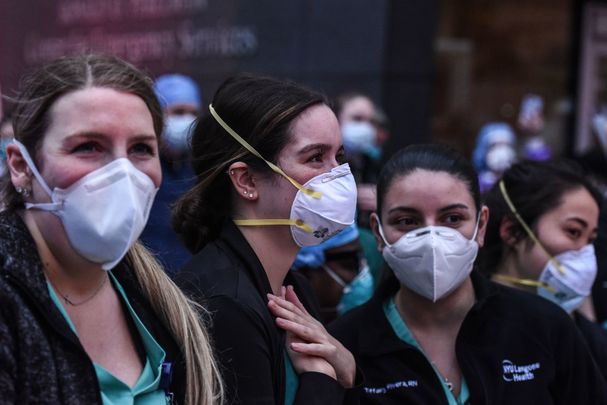As demand surges for the anti-malaria drug hydroxychloroquine President Trump claims is the answer to COVID-19, a Trinity scientist wades in.
Editor's note: The online demand for the anti-malaria drug hydroxychloroquine has surged by more than 1,000% after the President of the United States Donald Trump endorsed it as a potential treatment for COVID-19 without providing evidence that it worked. Here Trinity College Dublin provides an editorial from Niamh O’Boyle, Assistant Professor of Pharmaceutical Chemistry, at the School of Pharmacy and Pharmaceutical Sciences, which asks "can you teach an old drug new tricks?"
Your old, crumpled box of anti-malarial drugs has been lying squashed at the back of a drawer from an overseas trip many years ago. You heard that guy on the TV saying it was a miracle cure for coronavirus. It can’t hurt to take it just in case, right?
But a few hours later, you start to get stomach cramps, blurred vision, and vomiting. Soon after, your heart starts to skip a beat and you’re feeling faint. You are likely to be suffering from an overdose of hydroxychloroquine, a drug that has hit the headlines in recent weeks.
Read more: My Frontline Hero honors real-life superheroes battling COVID-19
Many commonly used prescription drugs are safe only below a certain dose. This is true of hydroxychloroquine. At the correct dose, this drug can be a lifesaver for treating malaria. It is also used at carefully controlled levels to manage rheumatoid arthritis.
An overdose of hydroxychloroquine, however, can be fatal. It shot to prominence recently when President of the United States, Donald Trump, described it as having “tremendous promise” for treating COVID-19. This was tragically followed by several preventable deaths.
It is one of several drugs being touted as a cure for COVID-19. Scientists showed that it could stop the virus from growing in plastic containers in the laboratory. It stopped the viral infection in the lab in two ways: by preventing the virus from attaching to human cells, and also from getting into human cells.
Read more: IrishCentral COVID-19 Relief Fund launches, in association with The Ireland Funds America
The virus that caused SARS, SARS-CoV, and the virus that is causing COVID-19, SARS-CoV-2, are similar so hydroxychloroquine might work in the same way. However, plastic containers are a world away from the intricate and beautifully evolved structures that are our human bodies.
There is no evidence right now for effects – good or bad – in humans suffering from COVID-19. The World Health Organization is carrying out a global clinical trial, the ‘Solidarity’ trial, to investigate its potential to treat COVID-19.
Until the results from large trials like this emerge in the coming weeks and months, it is likely to be used only for severely ill patients in hospital. It is incredibly toxic in overdose, and overdoses are very difficult to treat. A hydroxychloroquine overdose would, in fact, be no less terrible than suffering from COVID-19.
So, is hydroxychloroquine a marvelous medicine or a false hope? Right now, until the results from those trials are in, we just don’t know. The same goes for chloroquine, a similar antimalarial drug.
The bottom line: please don't take either of these drugs without proper medical supervision. Talk to your pharmacist or doctor if you have any questions. Imagine how you'd feel being rushed into A&E with self-inflicted injuries at a time like this.
* Niamh O’Boyle, assistant professor of pharmaceutical chemistry, School of Pharmacy and Pharmaceutical Sciences, Trinity College Dublin
Read more: How New York's paradise was lost, and why it may return after COVID-19




Comments